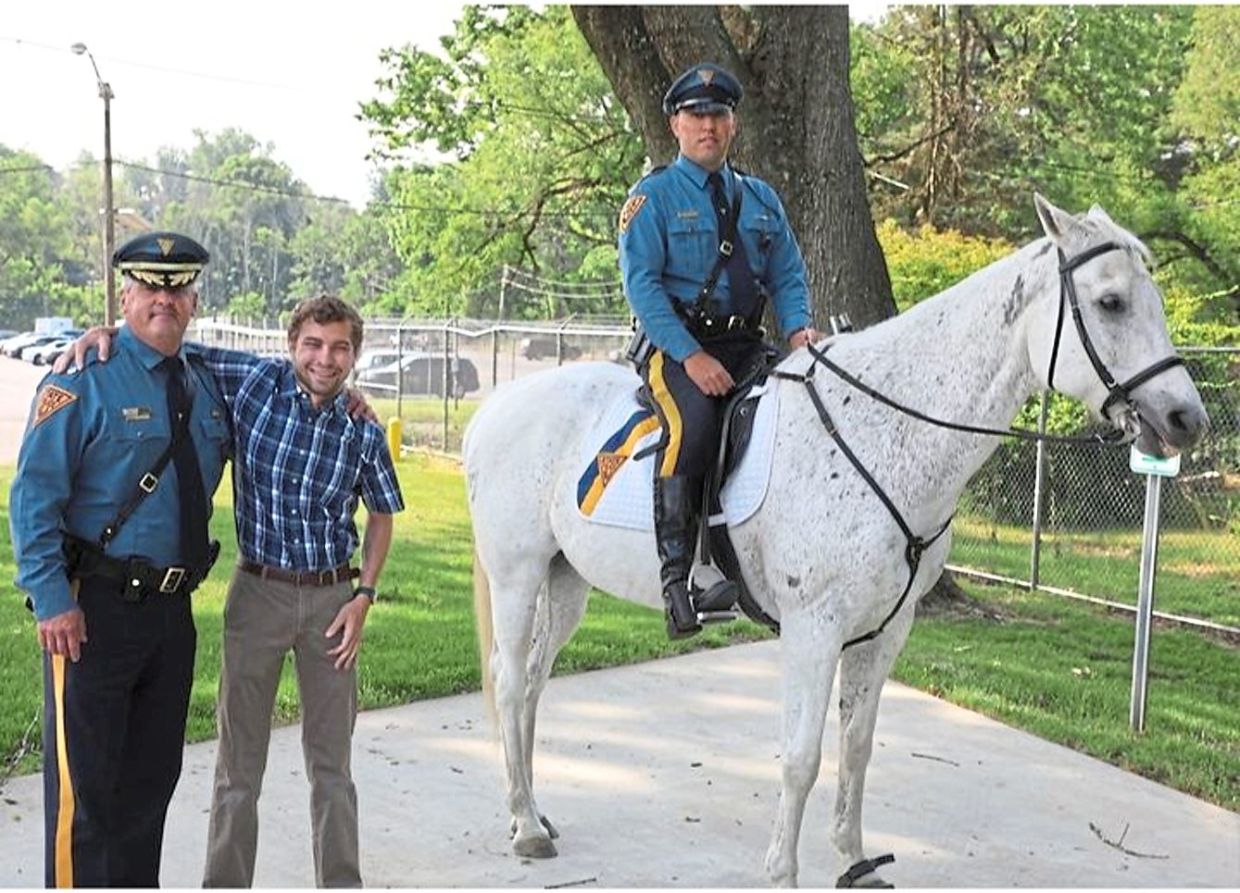Mann (centre) travels to police departments to show his support for law enforcement and to educate the first responder community about autism. Photos: Instagram/Newjerseystatepolice
Alex Mann made it his mission more than five years ago to visit 500 law enforcement agencies in the United States to educate officers about autism spectrum disorder, as someone on the spectrum.
Mann began his journey back in 2018, spurred to action by police brutality incidents against people with autism or similar diagnosis.
Since then, he has visited 495 law enforcement agencies on the US East Coast and given presentations on how law enforcement officers can better navigate interactions with people on the spectrum.
Autism spectrum disorder is a neurological and developmental disorder that affects how people interact with others, communicate, learn and behave, according to the US National Institute of Mental Health.
People with autism frequently have difficulty communicating, restricted interests and repetitive behaviors, and symptoms that can affect their ability to function in school, work and other areas of life.
“Autism spectrum disorder is very misunderstood,” Mann said. “I want to break the stigma and advocate for people who might not have a voice.”
An officer may believe someone is emotional or violent, resisting orders, or are under the influence when in reality, the person is on the spectrum, overwhelmed and merely trying to understand what is happening around them, Mann said.
People with neurological and developmental disorders, such as autism, are seven times more likely to have an encounter with law enforcement, Mann said.
And there are many people in society on the spectrum: 1 in 36 people are diagnosed with autism as children, according to Mann.
Boys are four times as likely than girls to be diagnosed with the disorder.
“Law enforcement should not think everything is awry (when they see someone who may be on the spectrum),” Mann said.
“They should take a step back, examine the situation, and see what is really going on. Sometimes, (people with autism) just need additional comfort,” Mann said.
Mann created his own short training module that he shares with agencies, and said officers should tailor their approach to the needs of the person in front of them.
His tips include avoiding loud noises or sudden movements, speaking quietly and calmly, and clearly explaining a step-by-step schedule or plan of what is going to happen to a person with autism.
“They may just be afraid of the uniform,” Mann explained.
Mann said officers have commented that they like when the training comes from someone with personal experience, and are “unbelievably” receptive to his advice.
Recently, Pennsylvania’s Dauphin County commissioners presented Mann with a proclamation recognising his effort and bidding him welcome to the county.
He has driven between 16,100km and 24,140km for his self-funded trips over the past five-and-a-half years. – Tribune News Service
Building awareness
Mann (centre) travels to police departments to show his support for law enforcement and to educate the first responder community about autism. Photos: Instagram/Newjerseystatepolice
'Autism spectrum disorder is very misunderstood,' says Mann.
Photos: Instagram/Newjerseystatepolice
Mann (left) is on a mission to spread autism awareness to law enforcement officers.
Photos: Instagram/Newjerseystatepolice








